Ayurvedic Beauty Tips: 21 Rituals For Glowing Skin
The ancient system offers a multitude of wellness tips that can keep your skin glowing.
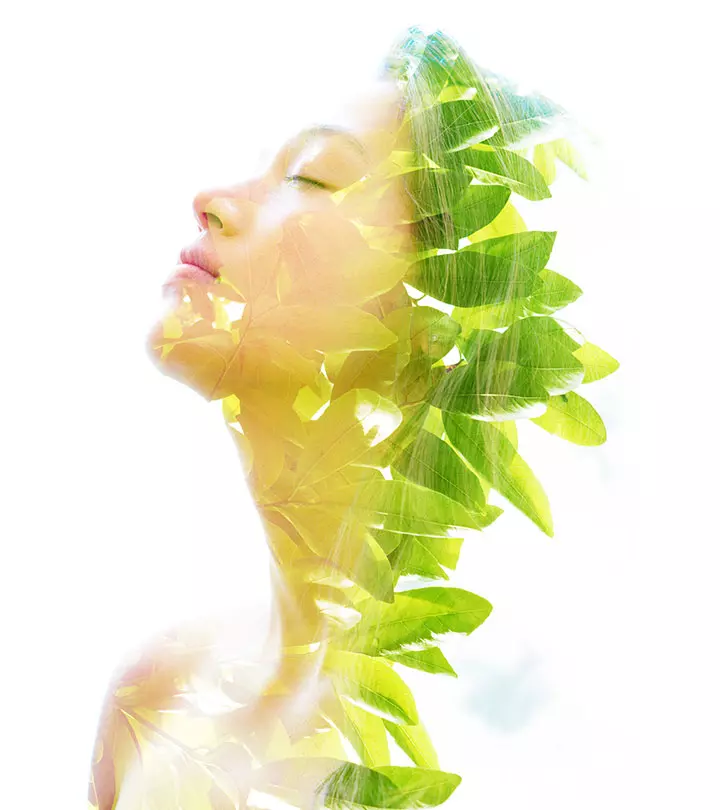
Image: Shutterstock
Ayurveda is an ancient science that is a reservoir of nature’s essence. Not only natural remedies, but it is also a way of life that helps you embrace better lifestyle habits. If you are looking for holistic solutions for your skin care troubles, we have a few Ayurvedic beauty tips about effective ayurvedic herbs for glowing skin that will help you glow inside out. In this article, we have listed a few Ayurvedic tips and purifying habits that you can incorporate into your skin care routine. Keep reading!

 Quick Tip
Quick TipIn This Article
21 Must-Try Ayurvedic Beauty And Skin Care Tips
Key Takeaways
- Avoid incompatible food combinations such as ghee and honey, milk, and meat, as they may negatively affect your skin and health.
- Consuming seeds and nuts may promote healthy skin as they have omega-3 and fiber.
- Apply potato juice to get rid of pigmented marks and fenugreek paste to prevent wrinkles.
- Prepare homemade face packs with sandalwood, saffron, and aloe vera for radiant and soft skin.
Ayurvedic Lifestyle Tips For Glowing Skin
1. Early To Bed And Early To Rise

Apart from making you healthy and wise, this practice protects your beauty. Having too many late nights and not getting enough sleep increases the number of inflammatory cells in your body that worsen and trigger skin issues, such as acne and dermatitisi Inflammation of skin resulting in redness, itchy skin, swelling, or blisters. Mainly a result of an allergic reaction. . Moreover, they make the skin hydration system go haywire, causing your skin to become dry and age quickly. You need to follow a proper routine to make your skin feel rejuvenated (1), (2).
2. Do Not Mix Incompatible Foods
Food is medicine. But it can turn into poison when taken in the wrong combination. Avoid these incompatible food items to take care of your skin and health (3):
- Milk And Fruit: Yes. Even if you love your bowl of yogurt mixed with fruits, avoid it. Fruits are digested quickly, and milk takes time to digest. So, during the processing time, the fruit curdles the milk and creates acidity.
- Milk And Meat: Avoid consuming milk products (including desserts) if you have fish and meat. Fish heats up your body while milk cools it down. Combining these contrasting foods obstructs the vital body channels.
- Cold Drinks After A Meal: Avoid having iced or cold drinks after meals. This is because cold suppresses the digestive juices and causes stomach issues. This is also applicable for frozen yogurt and ice cream after (or before) meals.
- Ghee And Honey: Both, when taken together, react with the digestive acids in the body and produce toxic byproducts that can reportedly trigger rheumatici Disorders involving inflammation of joints, muscles, or tissue that causes joint and body pain. , neurological, and skin-related issues.
3. Drink Tea
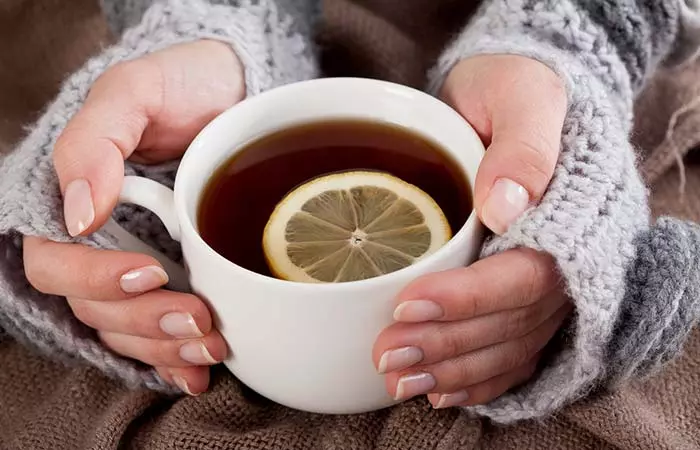
Keeping yourself hydrated throughout the day is important. Drink water and also sip herbal tea in between. Make tea using herbs like chamomile, ginger, or lemon, and have it in the afternoon to keep your digestion healthy (4). And a healthy digestive system is crucial for glowing skin.
A blogger shared her personal experience about how she likes to consume ginger tea for its various health benefits. She states in her blog post, “I noticed that the ginger not only helped settle my digestive tract (translation…less gas/bloating), but I also noticed I was overall less puffy throughout my entire body (i).” She further shares, “I decided to use some of the puree to make some ginger tea. It proved to be extremely flavorful, with a nice spicy bite to it, and maintained some of the therapeutic properties I enjoyed about the concentrated shots.”
4. Consume Vegetables With High Water Content
Vegetables high in water content can be digested easily. Vegetables such as carrot, radishes, lettuce, asparagus and fennel tips, and cucumber are beneficial for all skin types. These are revered as purifiers. Cook them or dice them and make a salad. Always combine at least 3-5 vegetables in any form to keep your skin healthy (5)(6).
5. Exercise
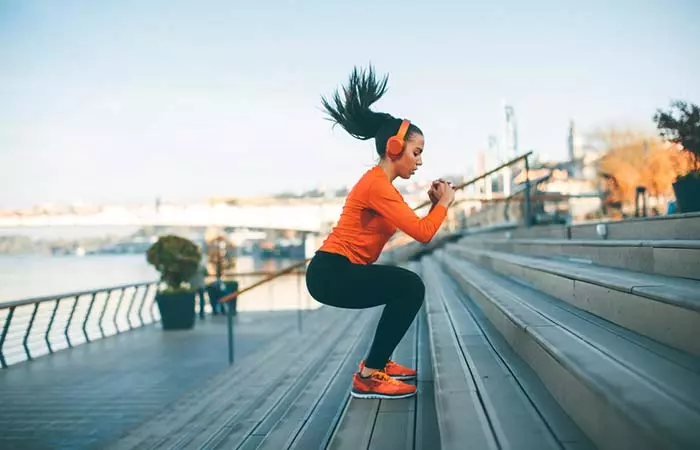
Not only are exercise and yoga good for your heart and lungs, but they also give you beautiful and glowing skin. Exercise boosts blood circulation and regulates skin metabolism to keep it healthy and youthful. This makes your skin glow from within (7).
6. Do Breathing Exercises
More than physical stress, mental stress can take a toll on skin health. Controlled breathing exercises are a great way to kick away stress and calm your mind. Before you go to sleep, do a simple breathing exercise. Inhale and fill your belly with air. Then, let it rise. Fill your lungs and then exhale slowly in the opposite order. Follow this for 5 to 20 minutes before you sleep or during any time of the day (8).
 Quick Tip
Quick Tip7. Meditate

You must be wondering how this can make your skin beautiful and glowing. Well, meditation helps in calming down your mind. When your mind is at rest, the positive energy or “chi” flows through your body, flooding your cells with vital energies. This not just reduces stress but also rejuvenates your skin (9).
A survey conducted on 1497 participants found that meditation ranked twenty-fourth among the most popular cerebral activities practiced by Americans. It was estimated that 53% of the participants liked the activity, out of which 52% of men and 53% of women liked it. Additionally, meditation was popular among 61% of millennials, 50% of Gen X, and 47% of baby boomers respectively.
8. Moisturize Your Skin
Keeping your skin moisturized
and hydrated is crucial. Apart from drinking enough water, indulge in oil massages. Oil massage or Abhyanga is a vital part of the Ayurvedic skin care routine. Massaging your skin with herbal oils not only relaxes your muscles and tissues but also boosts blood flow. It also keeps dry skin at bay (10). For best results, massage your skin with oil just before hitting the bed so that it gets enough time to rejuvenate itself and soak in the goodness of the oil. You may try self-massage or visit a spa for an oil massage.
9. Consume Seeds And Nuts
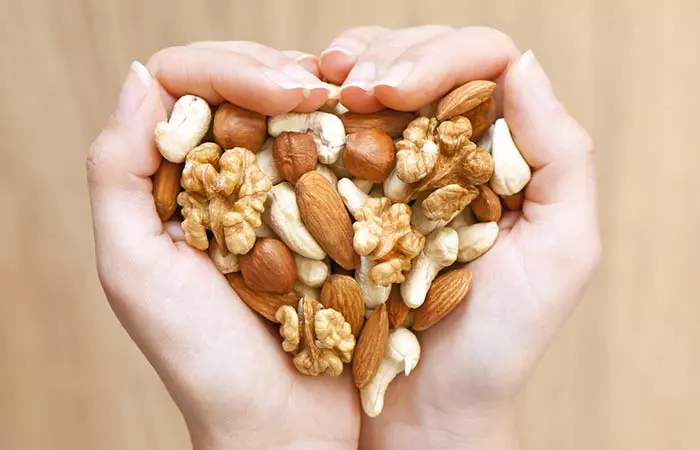
Seeds and nuts are not just for birds. In fact, adding them to your regular diet keeps your skin healthy. They contain healthy fats that are good for your cardiovascular systemi It is also called the circulatory system and includes the heart and blood vessels. as well as your skin (11). They also contain omega-3 fatty acids and fiber. Consume sunflower seeds, almonds, pistachios, and flax seeds regularly for glowing skin.
10. Cut Down On Your Sugar And Salt Intake
High salt intake affects your blood pressure levels, and this, in turn, increases your risk of cardiovascular disease. Also, excess sugar and salt can affect the overall skin health, may lead to acne, and trigger allergic reactions (atopic dermatitis) (12),(13). These two compounds keep your skin elastic, toned, and wrinkle-free.
11. Protect Your Skin From Excessive Sun Exposure
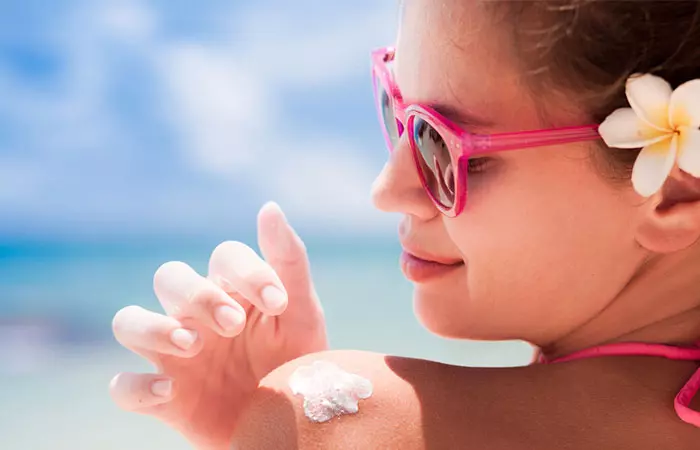
Too much of anything is bad for you. While a bit of sun exposure is a necessity for giving your skin the daily dose of vitamin D, excessive exposure can harm it. The UV rays can cause tanning, sunburn, hyperpigmentation, and wrinkles (14). Whenever you go out, don’t forget to apply sunscreen. Use an umbrella, a hat, or a scarf to protect your skin.
In addition to improving your lifestyle habits, you must stop slathering your skin with chemicals every day. Instead, switch to natural ingredients and remedies to keep it healthy. You will find these ingredients easily in your kitchen or fridge. Let’s look at a few.
Ayurvedic Beauty Tips For Healthy And Glowing Skin
12. Orange For Improving Your Complexion
The peel of orange contains vitamin C and antioxidants that keep your skin clear and bright (15). It is the perfect ingredient to make the ayurvedic face pack for oily skin. It also minimizes acne outbreaks. Dry orange peels under the sun, and powder them to use on your skin.
What You Need
- 1 tablespoon orange peel powder
- 2 tablespoons yogurt
Method
- Mix the powder and yogurt.
- Use a brush to apply it evenly on your face and neck.
- Keep it on for 20 minutes.
- Wash it off.
13. Sandalwood And Turmeric For Controlling Acne
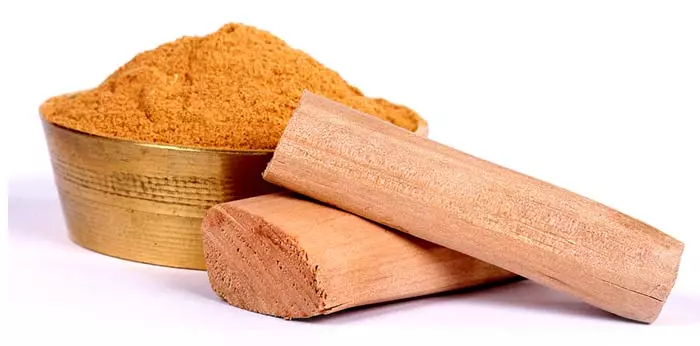
Both sandalwood and turmeric are revered in Ayurveda for their antibacterial properties. Both are extensively used in ayurvedic skin care too. They kill the acne-causing bacteria, clear the skin, tighten the pores, and reducing inflammation (16), (17).
What You Need
- 1 tablespoon sandalwood powder
- ½ tablespoon turmeric
- 2-3 tablespoons honey (adjust as per the consistency)
Method
- Mix all the ingredients in a glass bowl.
- Make a creamy paste.
- Apply all over your face and keep it on until it dries.
- Wash it with cold water.
14. Raw Potato For Pigmentation
According to anecdotal evidence, potatoes contain starch and have mild bleaching properties that help in fading pigmentation, dark spots, and scars naturally. Moreover, they also contain helpful enzymes that prevent premature aging. However, there is no scientific evidence to prove this claim.
What You Need
- 1 potato
- Cotton ball
Method
- Grate the potato and extract the juice.
- Dip the cotton ball in the potato juice and apply it to the affected area.
- Leave it on overnight.
- Wash it off the next day.
15. Fenugreek For Preventing Wrinkles
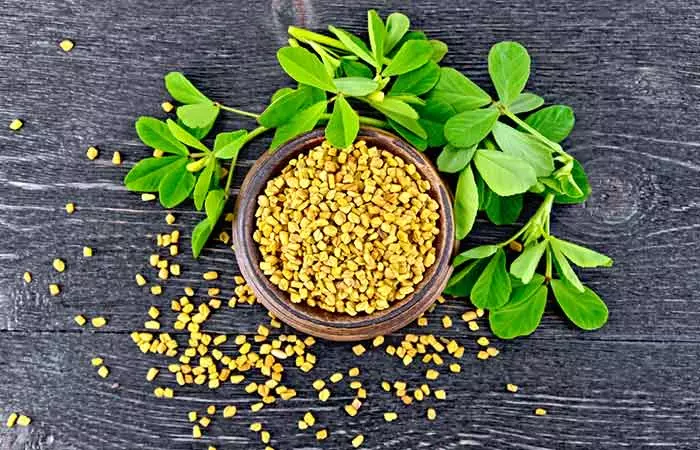
Fenugreek leaves contain essential vitamins and minerals that are effective in treating many skin issues, including wrinkles. You can use both fenugreek leaves and seeds. Your skin absorbs it easily, and you will see visible results with daily use (18).
What You Need
A handful of fresh fenugreek leaves (or 1 tablespoon fenugreek seeds)
Method
- Grind the fenugreek leaves and make a fine paste.
- Apply a thin layer of the paste evenly all over your face.
- If you are using fenugreek seeds, boil them in water and apply the water with cotton.
- Leave it on for 30 minutes or an hour.
- Wash with lukewarm water.
16. Cow Ghee Massage For Anti-Aging Benefits
Pure cow ghee has multiple benefits. It enhances digestion and flushes out toxins from your system. And when you apply it to your face, it boosts collageni An essential protein in the skin and connective tissues responsible for skin elasticity and firmness. production, keeps your skin moisturized, and slows down the aging process. However, there is not enough empirical evidence to support the topical benefits of ghee.
What You Need
- ½ teaspoon pure cow ghee
- A few drops of water
Method
- Mix the water and ghee.
- Apply the mixture to your face and massage for 10 minutes in circular motions.
- Let your skin absorb it for at least half an hour.
- You may leave it on overnight if you want.
- Wash off with a mild cleanser.
17. Tulsi Leaves For Instant Glow
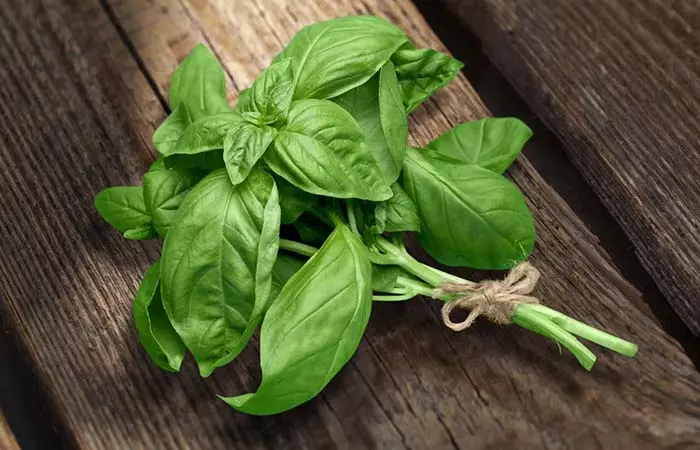
The benefits of tulsi are beyond comparison. From fighting common ailments to keeping your skin healthy, this wondrous herb holds a special place in ayurvedic treatment for the skin. Tulsi extracts can help maintain youthful and glowing skin (19).
What You Need
- A handful of tulsi leaves (basil)
- 1 tablespoon raw milk
Method
- Grind the tulsi leaves to make a paste.
- Mix it well with raw milk to give it a paste-like consistency.
- Apply the face pack and let it stay for 20 minutes.
- Wash with cold water.
18. Chickpea Flour For Dark Spots
Chickpea flour or besan is easily available in Indian kitchens and has amazing skin cleansing and antimicrobial properties. It is best for removing dark spots, tans, and pigmentation (20).
What You Need
- 2 tablespoons chickpea flour
- ½ teaspoon lemon juice (diluted)
- 1 teaspoon milk (or yogurt or milk cream)
Method
- Mix all the ingredients well and spread the pack on your face. Avoid
- the eyes.
- Let it dry completely.
- Wash with lukewarm water.
19. Chamomile And Fuller’s Earth For Toning Your Skin
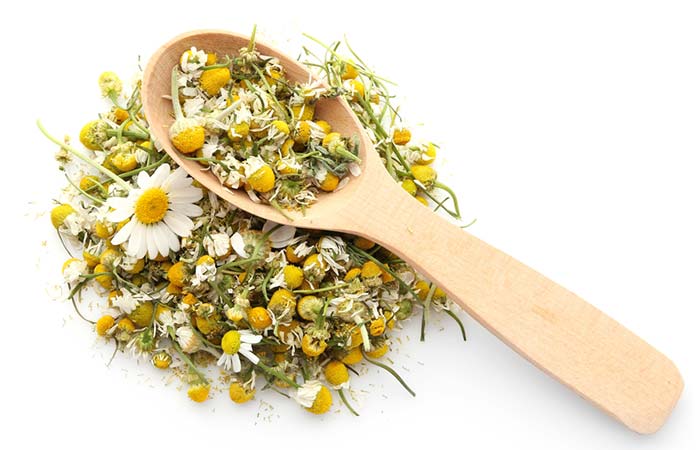
Chamomile is known for its antiseptic and anti-inflammatory properties. When mixed with fuller’s earth or multani mitti, it tightens the pores, prevents breakouts, and tones your skin to make it appear clear and bright (20), (21). It is used in many Ayurvedic face packs for glowing skin. Here is everything you will need to make the facepack:
What You Need
- 1 cup chamomile tea (brew it strong)
- 1 tablespoon fuller’s earth
- 2 teaspoons honey
Method
- Combine all the ingredients and make a paste.
- Spread it evenly on your face and neck.
- Leave it on until it dries and then wash with lukewarm water.
20. Sandalwood And Yogurt For Cleansing And Moisturizing
Sandalwood is a common ingredient in Ayurvedic medicine for glowing skin. It is a common ingredient in many home remedies for beautiful skin. It cleans the skin thoroughly, killing germs and bacteria, and leaves it looking fresh and bright. Yogurt has a brightening and moisturizing effect on your skin. It reduces blemishes and extra oiliness (17), (22).
What You Need
- 1 teaspoon white sandalwood powder
- ½ teaspoon milk
- ½ teaspoon yogurt
- ½ teaspoon turmeric powder
Method
- Combine all the ingredients to make a paste.
- Use a brush to spread it thoroughly all over your face and neck.
- Leave it on for 20 minutes or until it is dry and your skin feels tight.
- Wash with cold water.
21. Saffron And Aloe Vera For Radiant Skin
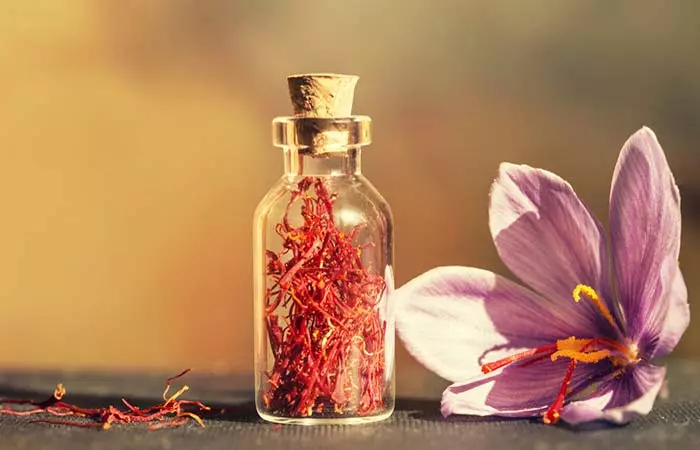
Saffron or kesar is among the most expensive spices in the world. It is a time-tested spice that nurtures your skin and keeps it radiant and blemish-free. Aloe vera soothes your skin and reduces inflammation (23), (24).
What You Need
- A pinch of saffron strands
- 1 teaspoon milk
- 1 tablespoon aloe vera gel
Method
- Soak the saffron strands in milk. Leave it on overnight.
- The next day, mix it well with the aloe vera gel.
- Apply it to your face and let it stay for half an hour.
- Wash off with cold water.
Apart from these wonderful natural herbs, there are a few other ayurvedic herbs such as amla, neem, rose water, ashwagandha and much more that are extremely magical for optimal skin health (25).
Dull skin got you down? If you are looking for natural ways to get glowing skin, check out this video for some amazing Ayurvedic beauty tips to get that flawless glow!
Infographic: Dos And Don’ts Of Ayurveda For A Glowing Complexion
The ancient and holistic medical practice of Ayurveda offers several treatments to help you get better skin and hair and improve your overall health. Check out the infographic below to learn some of the beauty secrets of Ayurveda that you can adopt in your everyday life to improve your skin tone and complexion. Keep scrolling!
Some thing wrong with infographic shortcode. please verify shortcode syntaxAyurvedic beauty tips are gaining popularity all over the world. These tips not only enhance your skin health but also promote your overall health. The tips include going to bed early and waking up early, avoiding a few food combinations, including herbal teas in your daily diet, eating more vegetables, exercising regularly, meditation, yoga, moisturization, and cutting down salt and sugar intake to positively affect your overall health. Also, including orange, turmeric, sandalwood, raw potato, chamomile, Fuller’s earth, tulsi leaves, and fenugreek in your skin care regimen in form of different combinations of facial masks to help improve your skin health.
Frequently Asked Questions
Can Ayurveda cure skin problems?
Yes. Ayurvedic practitioners believe that skin issues are caused by a dosha imbalance. Thus, their treatment aims to restore balance and harmony in the individual’s doshas. In addition, long-term skin illnesses and chronic conditions like dermatitis and eczema can be treated with Ayurveda.
Is Ayurveda better for skin?
Possibly. It can be better for people who prefer using natural ingredients to treat their skin issues. Ayurveda claims that skin issues are caused by an imbalance in any of the three doshas. This imbalance may be caused by food, lifestyle or other external factors including pathogens and pollutants., Ayurveda provides a comprehensive treatment that is both safe and effective over time.
How can I determine my dosha (Ayurvedic body type) for personalized skincare?
To find out your Ayurvedic body type or Dosha, you can take online quizzes and assessments, or consult an Ayurvedic practitioner or skin specialist to find it out.
Can Ayurveda help with specific skin concerns like acne or dryness?
Yes, Ayurveda helps address the root cause of a particular skin concern, rather than just treating the symptoms. Ayurvedic remedies and treatments include lifestyle and dietary changes, herbal supplements, and natural skin care products to improve overall health leading to better skin.
Can Ayurvedic practices like oil pulling or tongue scraping contribute to better skin health?
Yes, Ayurvedic practices like oil pulling and tongue scraping help remove toxins from the body, which might aid in improving digestion and absorption of nutrients, ultimately leading to better health and skin.
How long does it take to see results from Ayurvedic skin care practices?
It can take anywhere from 4 weeks to months to see results from Ayurvedic skin care practices.
Illustration: Simple And Effective Ayurvedic Beauty Tips For Glowing Skin

Image: Stable Diffusion/StyleCraze Design Team
Personal Experience: Source
StyleCraze's articles are interwoven with authentic personal narratives that provide depth and resonance to our content. Below are the sources of the personal accounts referenced in this article.
i. Fresh Ginger Tea- Perfect Winter Toddyhttps://allergyfriendlyvegetarian.wordpress.com/2016/03/01/fresh-ginger-tea-perfect-winter-toddy/
References
Articles on StyleCraze are backed by verified information from peer-reviewed and academic research papers, reputed organizations, research institutions, and medical associations to ensure accuracy and relevance. Read our editorial policy to learn more.
- Sleep loss and inflammation
https://www.sciencedirect.com/science/article/abs/pii/S1521690X10001144 - The Effects of Sleep Deprivation on the Biophysical Properties of Facial Skin
https://www.scirp.org/journal/paperinformation?paperid=74581 - Viruddha Ahara: A critical view
https://www.ncbi.nlm.nih.gov/pmc/articles/PMC3665091/ - Review on herbal teas
https://www.researchgate.net/publication/287478165_Review_on_herbal_teas - Dietary water affects human skin hydration and biomechanics
https://www.ncbi.nlm.nih.gov/pmc/articles/PMC4529263/ - Contribution of Water from Food and Fluids to Total Water Intake: Analysis of a French and UK Population Surveys
https://www.ncbi.nlm.nih.gov/pmc/articles/PMC5084017/ - Exercise-stimulated interleukin-15 is controlled by AMPK and regulates skin metabolism and aging
https://www.ncbi.nlm.nih.gov/pmc/articles/PMC4531076/ - Effect of Modified Slow Breathing Exercise on Perceived Stress and Basal Cardiovascular Parameters
https://www.ncbi.nlm.nih.gov/pmc/articles/PMC5769199/ - Stress And Skin: An Overview of Mind Body Therapies As a Treatment Strategy In Dermatology
https://www.dpcj.org/index.php/dpc/article/view/dermatol-pract-concept-articleid-dp1104a091 - Abhyanga – A Conceptualized Study
https://www.iamj.in/posts/2018/images/upload/2540_2546.pdf - Plant-Based Foods for Skin Health: A Narrative Review
https://www.sciencedirect.com/science/article/pii/S2212267221014337 - Diet And Dermatology
https://www.ncbi.nlm.nih.gov/pmc/articles/PMC4106357/ - Processed Food and Atopic Dermatitis: A Pooled Analysis of Three Cross-Sectional Studies in Chinese Adults
https://www.ncbi.nlm.nih.gov/pmc/articles/PMC8685501/ - UV Radiation and the Skin
https://www.ncbi.nlm.nih.gov/pmc/articles/PMC3709783/ - Evaluation of Skin Anti-aging Potential of Citrus reticulata Blanco Peel
https://www.ncbi.nlm.nih.gov/pmc/articles/PMC4908842/ - Potential of Curcumin in Skin Disorders
https://www.ncbi.nlm.nih.gov/pmc/articles/PMC6770633/ - Sandalwood Album Oil as a Botanical Therapeutic in Dermatology
https://www.ncbi.nlm.nih.gov/pmc/articles/PMC5749697/ - Ethanolic Fenugreek Extract: Its Molecular Mechanisms against Skin Aging and the Enhanced Functions by Nanoencapsulation
https://www.ncbi.nlm.nih.gov/pmc/articles/PMC8879298/ - Ocimum sanctum Linn. as a natural source of skin anti-ageing compounds
https://www.sciencedirect.com/science/article/abs/pii/S0926669018309543 - In-House Preparation and Standardization of Herbal Face Pack
https://opendermatologyjournal.com/VOLUME/11/PAGE/72/FULLTEXT/ - Chamomile: A herbal medicine of the past with bright future
https://www.ncbi.nlm.nih.gov/pmc/articles/PMC2995283/ - Clinical efficacy of facial masks containing yoghurt and Opuntia humifusa Raf. (F-YOP)
https://pubmed.ncbi.nlm.nih.gov/22152494/ - Dermoprotective Effects of Saffron: A Mini Review
https://pubmed.ncbi.nlm.nih.gov/34544335/ - Aloe vera in dermatology: a brief review
https://pubmed.ncbi.nlm.nih.gov/19218914/ - Critical review of Ayurvedic herbs
https://www.ncbi.nlm.nih.gov/pmc/articles/PMC4623628/
Read full bio of Dr. Jayaprakash
Read full bio of Ramona Sinha
Read full bio of Eshna Das
Read full bio of Krati Darak







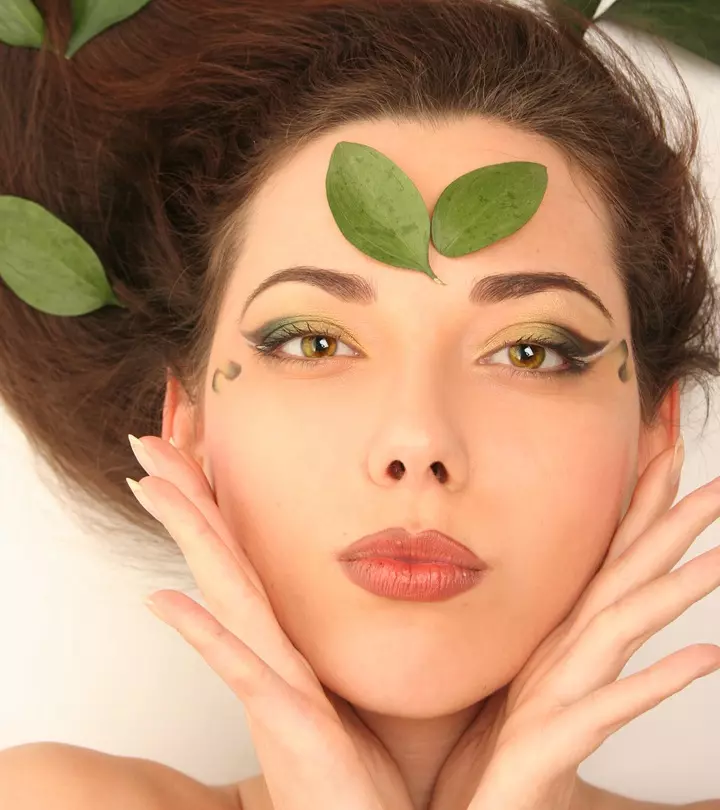
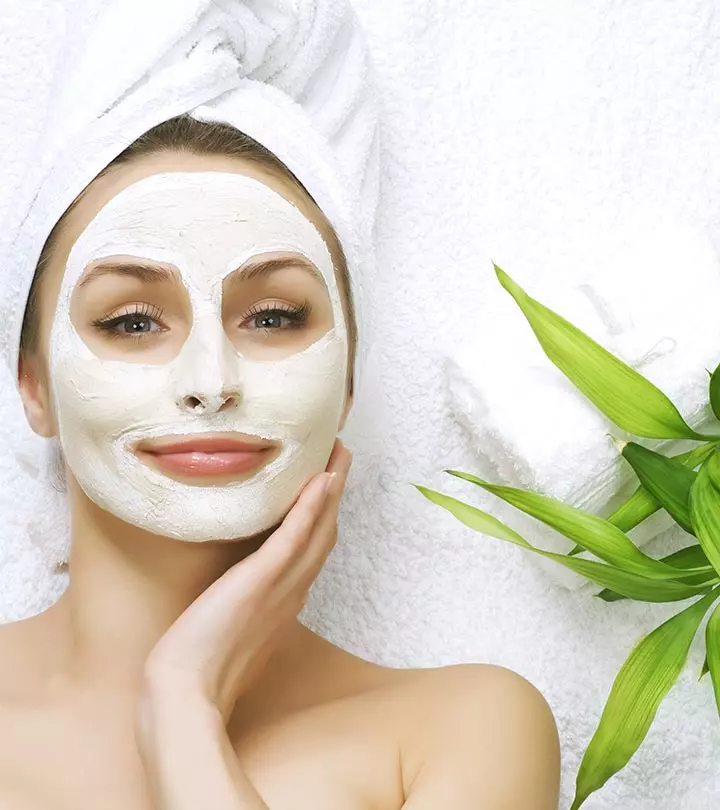

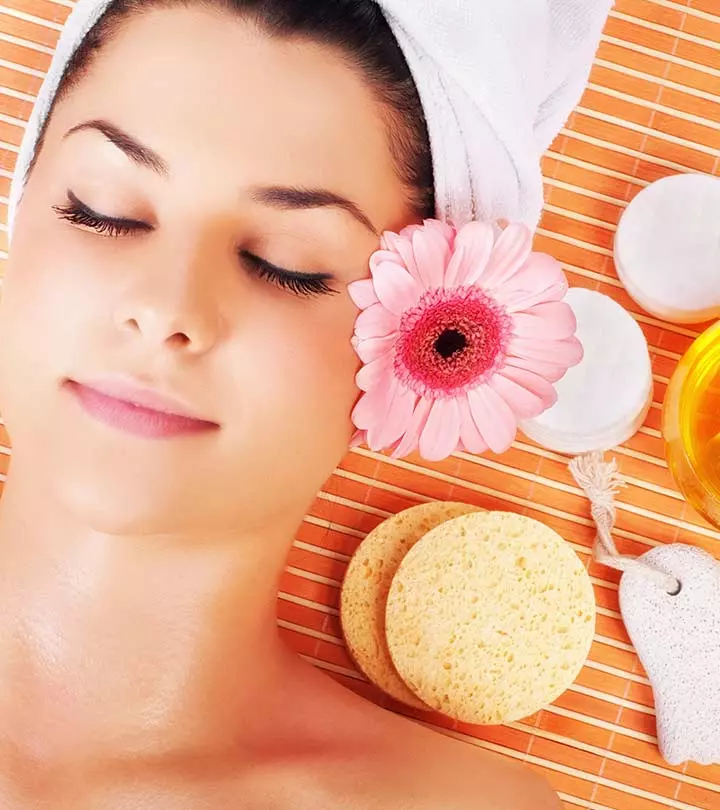
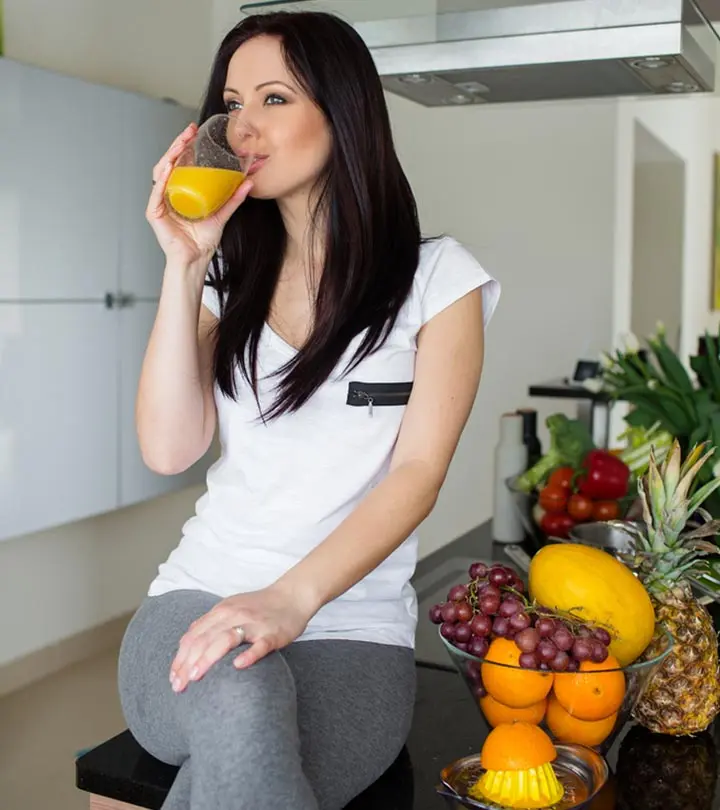
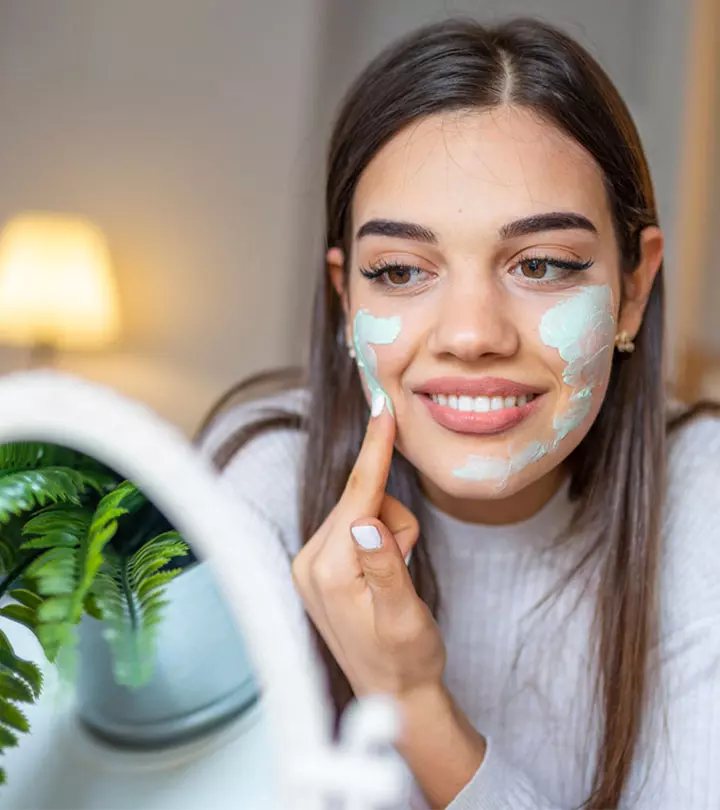
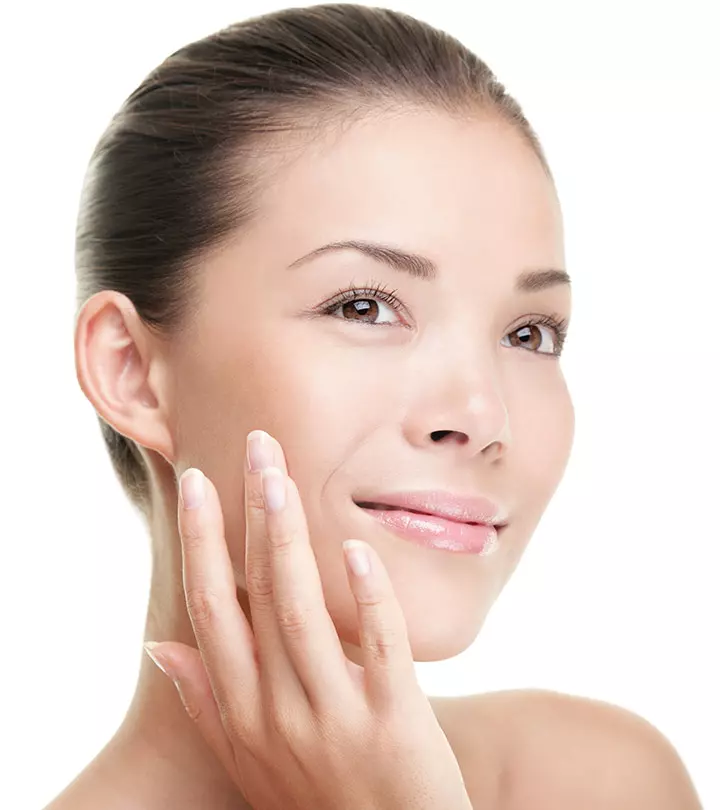
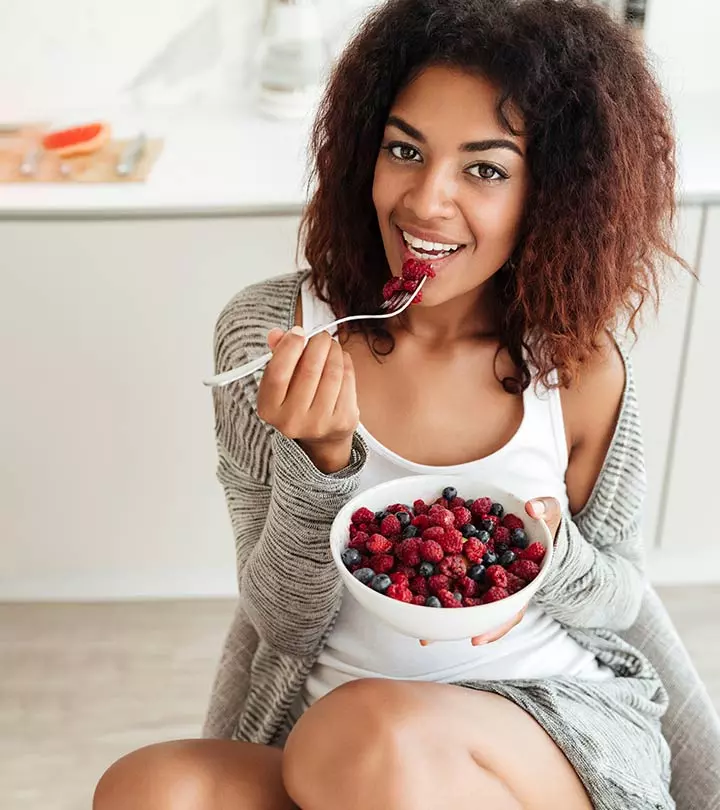
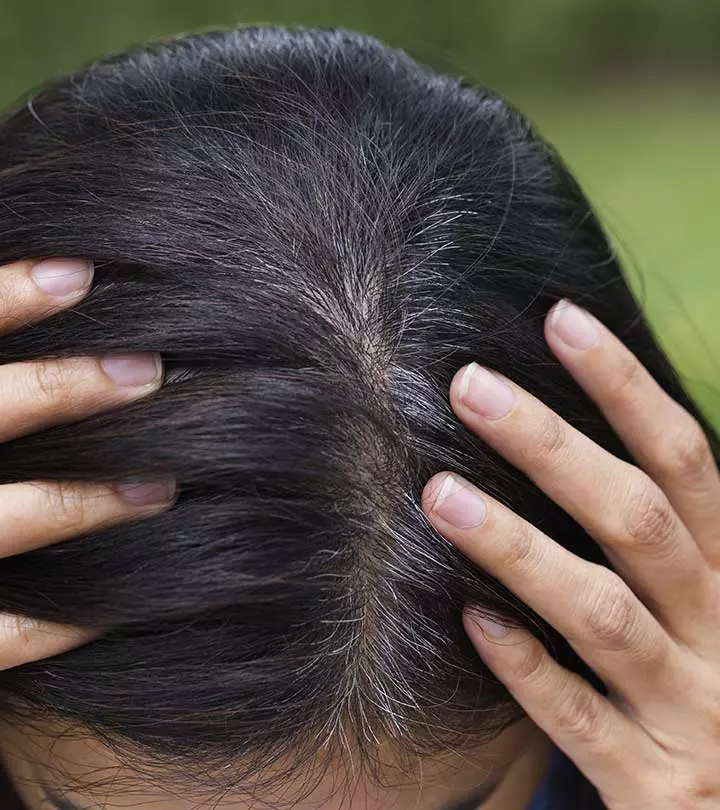
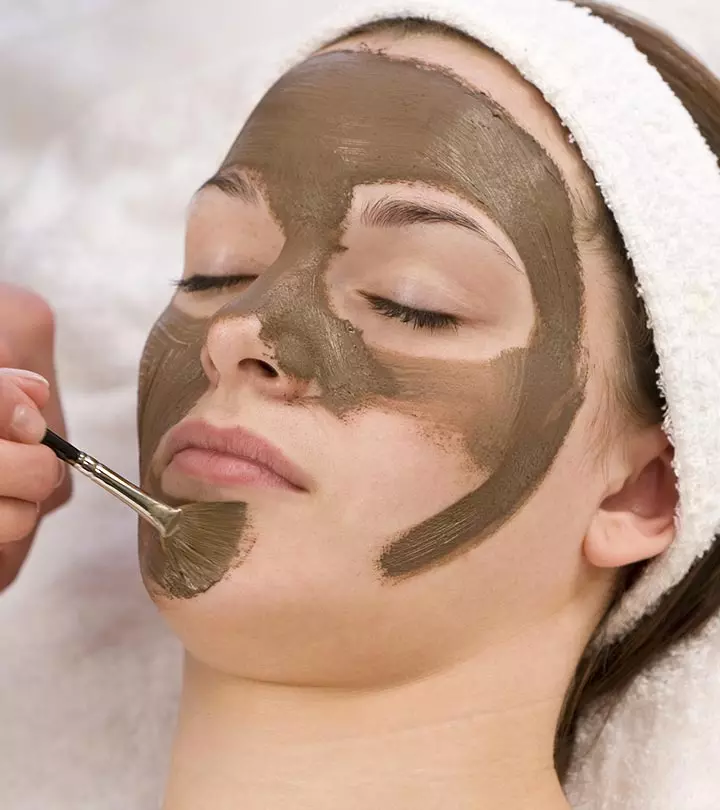
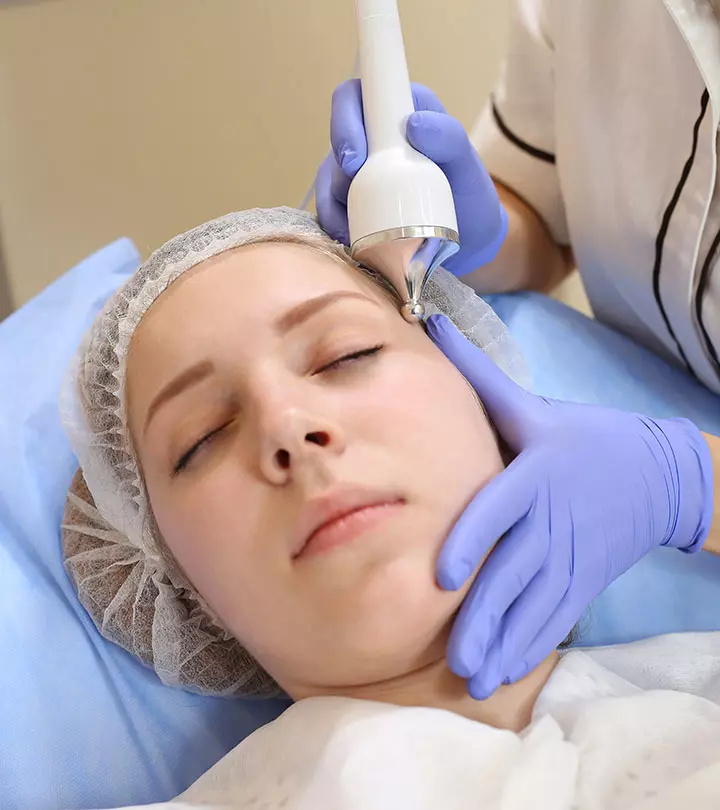
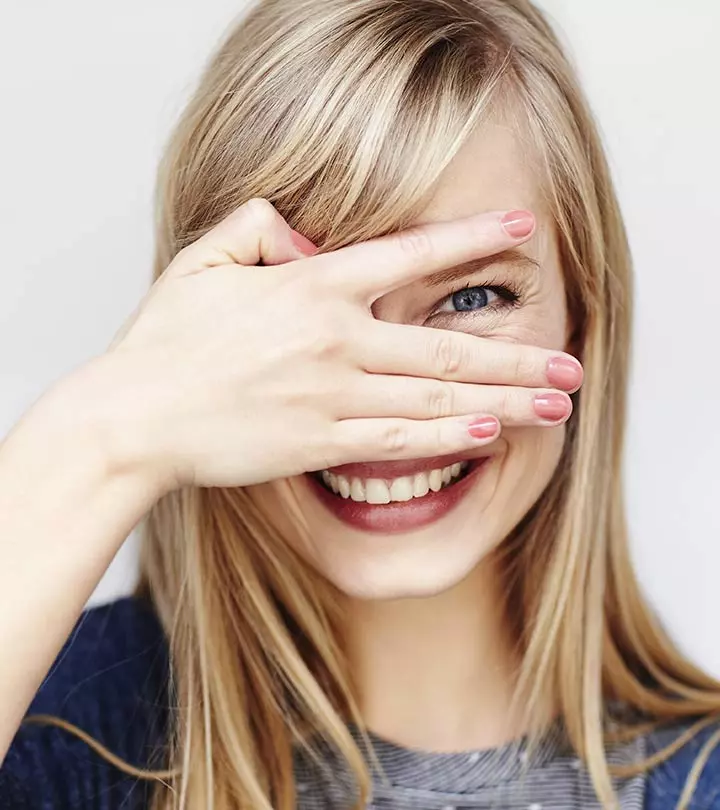
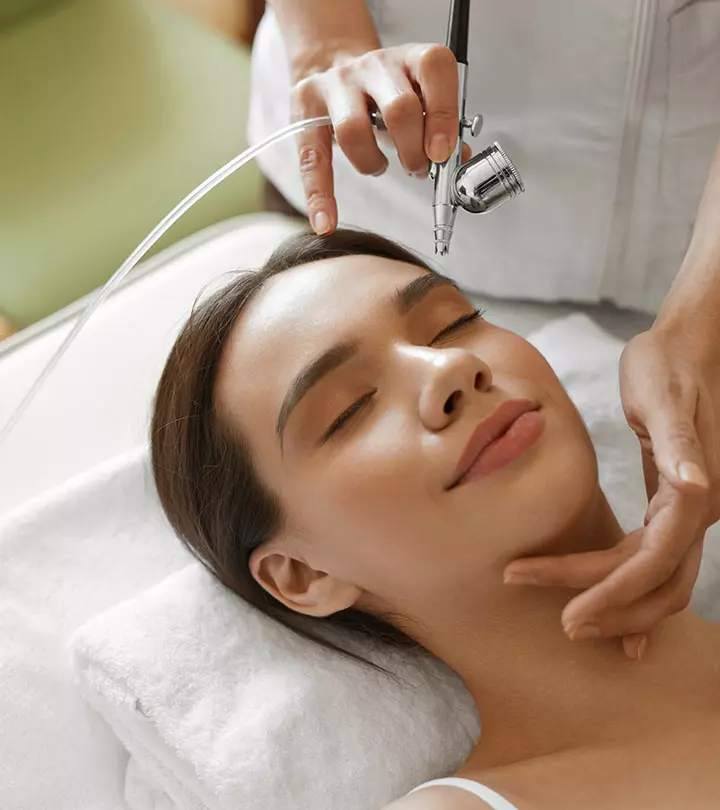
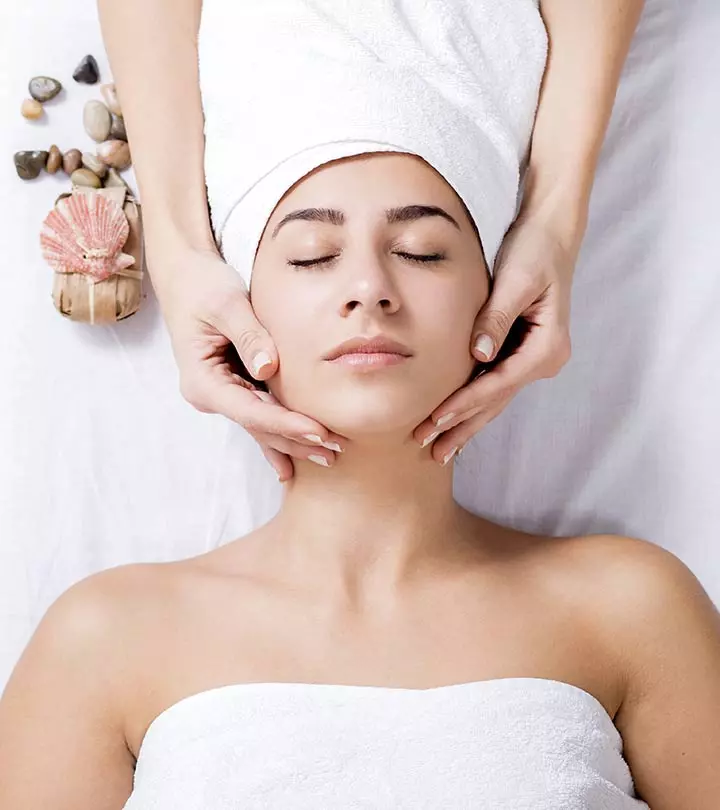
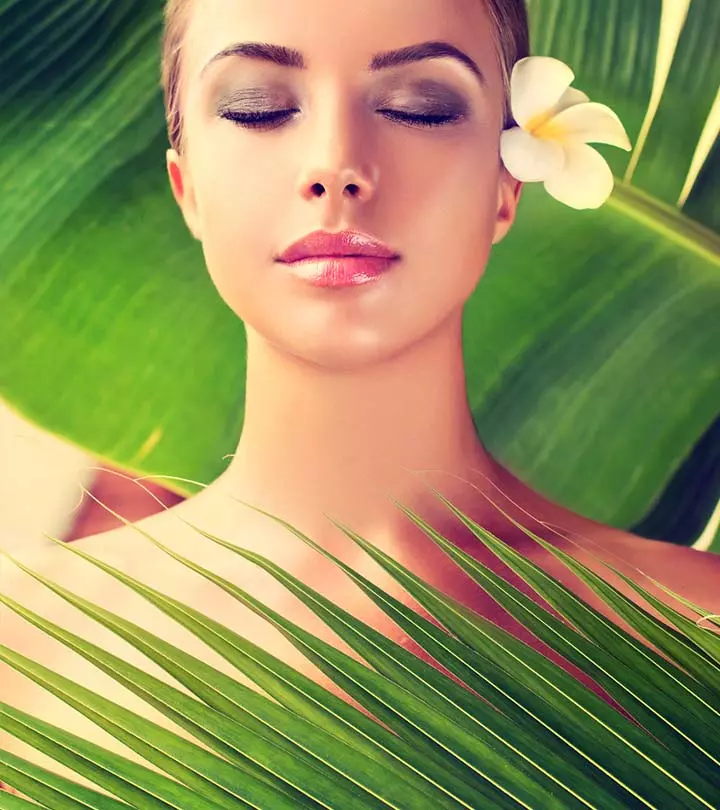

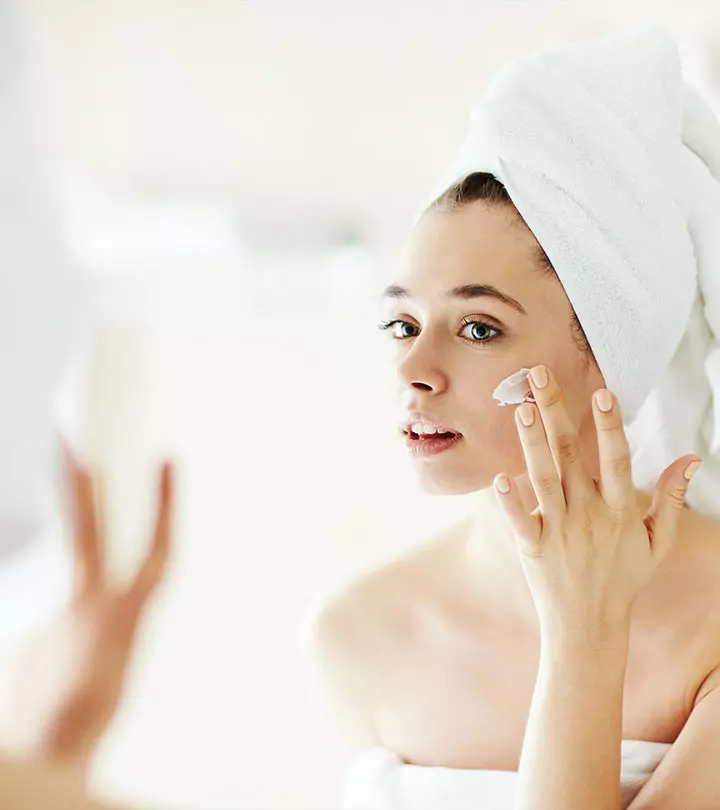
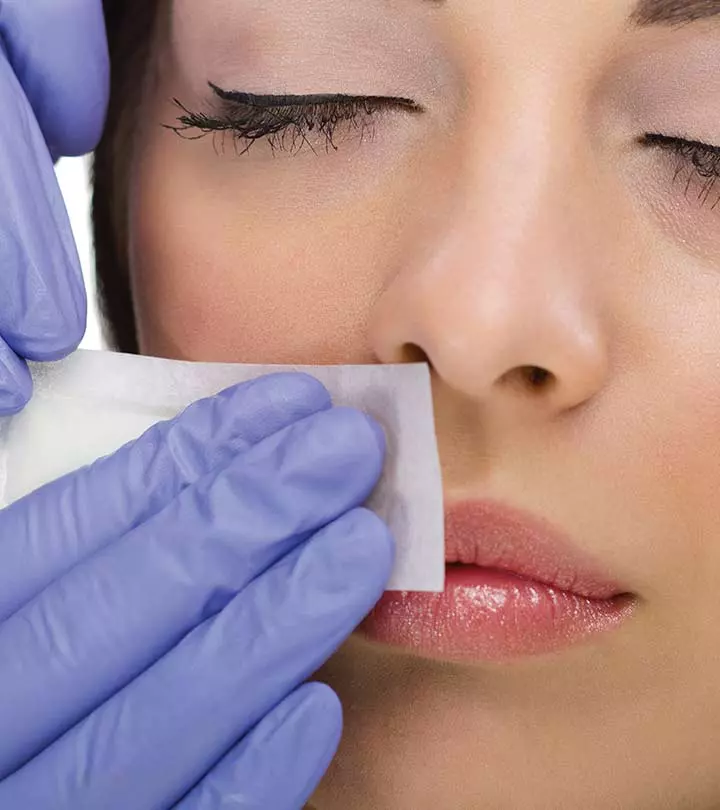
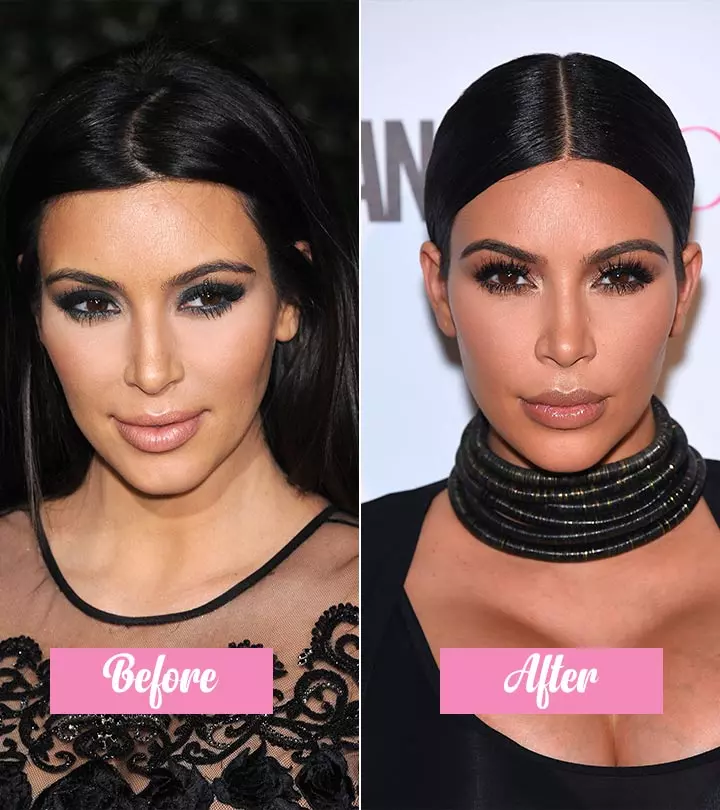

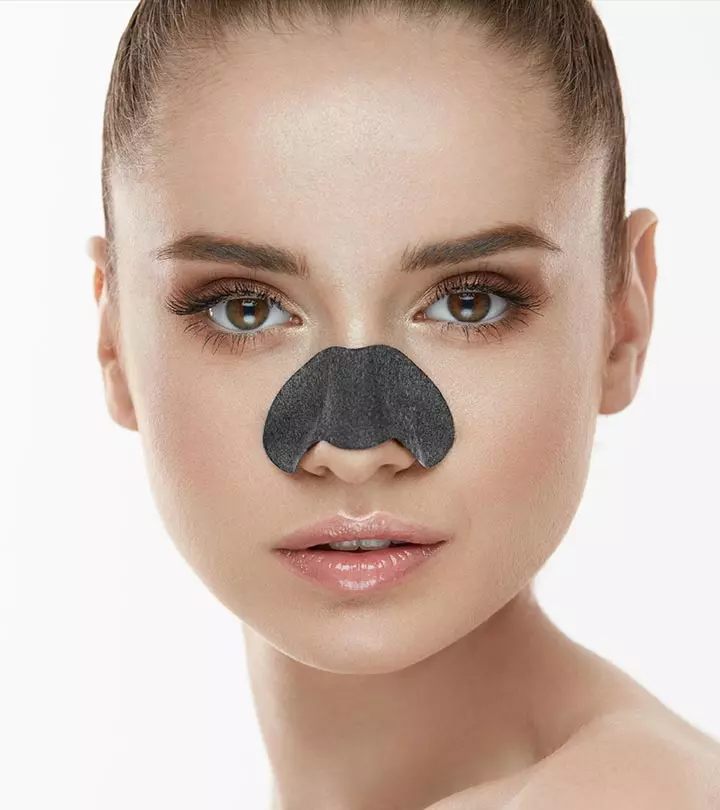
Community Experiences
Join the conversation and become a part of our empowering community! Share your stories, experiences, and insights to connect with other beauty, lifestyle, and health enthusiasts.